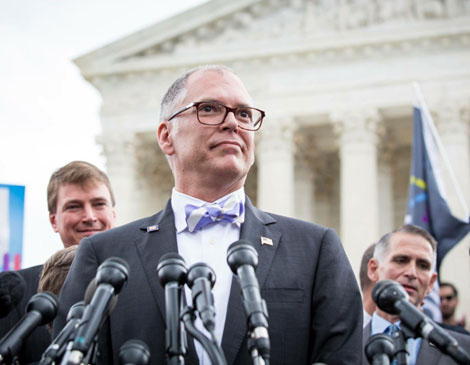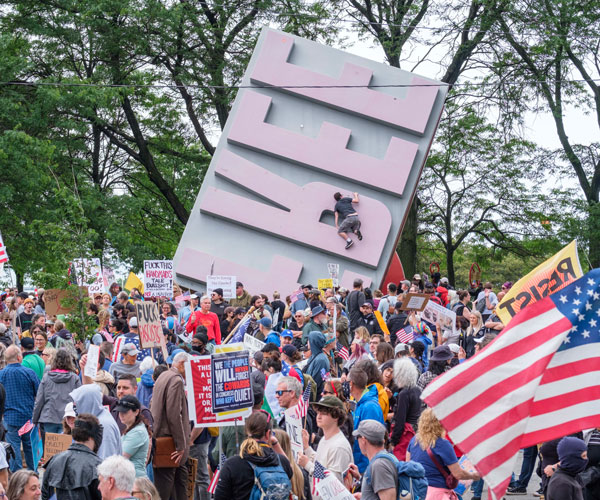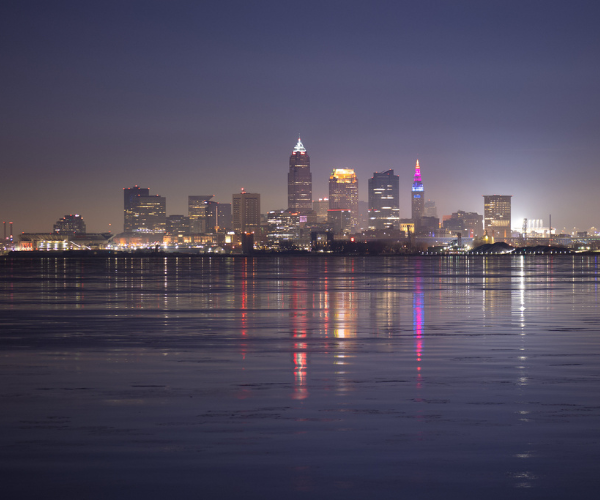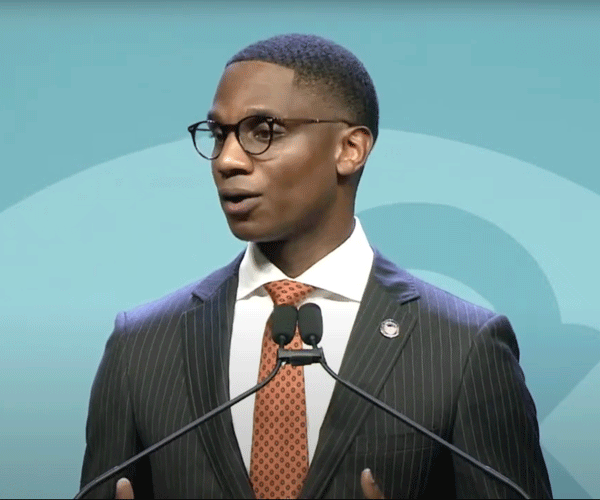
Three Questions with Marriage Equality Pioneer Jim Obergefell
The plaintiff in Obergefell v. Hodges, the U.S. Supreme Court case that legalized same-sex marriage, talks with us during a visit to Cleveland.
Where were you when you found out about the decision and how did that feel?
I was in the courtroom, in the Supreme Court. I was there for oral arguments. I started coming in mid-June [2015] because I wanted to be in the courtroom when the decision came down. … The session started, and the Chief Justice said, “Justice [Anthony] Kennedy will read the first decision.” He read our case number. It took me by surprise. I don’t know why. It was June 26, we’d already started to think, It’s probably going to happen today. But it still took me by surprise when he read our case number. He started reading it and my initial thought was we won. But he kept reading it, then I said, Well, I think we did. He went on, Well, maybe? Then it hit me that we really did win. And I, along with so many other people in that courtroom, just burst into tears. You could see it, you could hear it all around the courtroom, people crying. There was also this incredible feeling of joy. For me, the expected first thought was, I miss you John, I wish you were here, I wish I could kiss you and say we won. But the most amazing feeling for me in that moment was to realize that for the first time in my out life as a gay man, I felt more like a regular American. It was an incredible realization and an incredible feeling.
In your mind, what is the next big step forward in LGBT rights in Ohio?
I relate that to what I think the next big step nationally is, which is nondiscrimination. Nationally, to me, that’s updating the 1964 Civil Rights Act to include sexual orientation and gender identity. That will be a fight, absolutely. But what we can do here at the state level here in Ohio is to add statewide LGBTQ nondiscrimination protections. ... Updating those laws with protections for employment, housing, jury duty, all of those things. Right now, we don’t enjoy those protections. We’re not equal citizens.
Just across the Cuyahoga River, there’s a convention full of Republicans. Their party platform isn’t particularly friendly to LGBT people. What does that mean to you?
In the LGBTQ community, we are still in so many ways second class citizens. We’re targeted for discrimination and hatred because of the way we were born, because of who we are, because of the people we love. I find it really sad and disappointing and offensive that in 2016 we still have one of our major political parties voting and implementing a platform that demeans us and intends to strip away the rights we won to marry, along with other rights we’ve gained in the fight for equality. It’s scary. It frightens me, it saddens me, it disgusts me. I thought America was better than that. I thought “we the people” meant something, I thought equal justice under the law meant something. And, unfortunately, their platform is anything but that.
politics
5:30 PM EST
July 19, 2016



